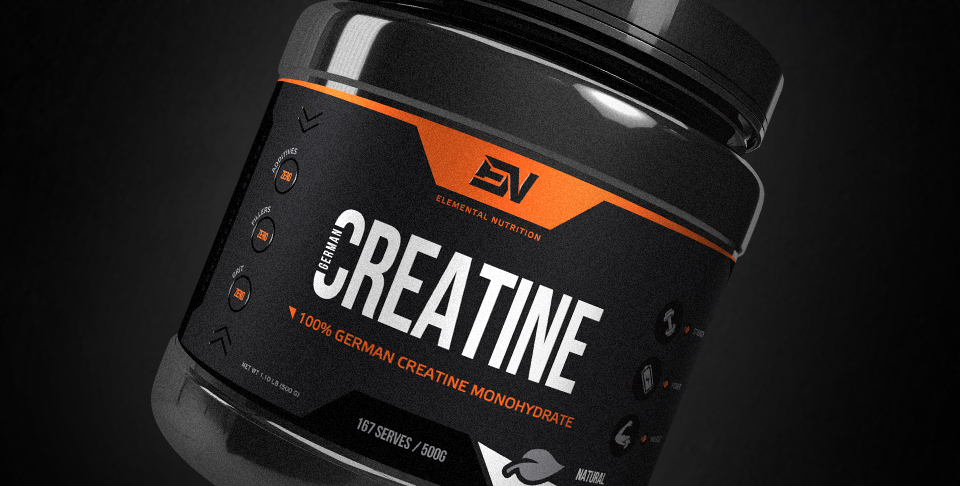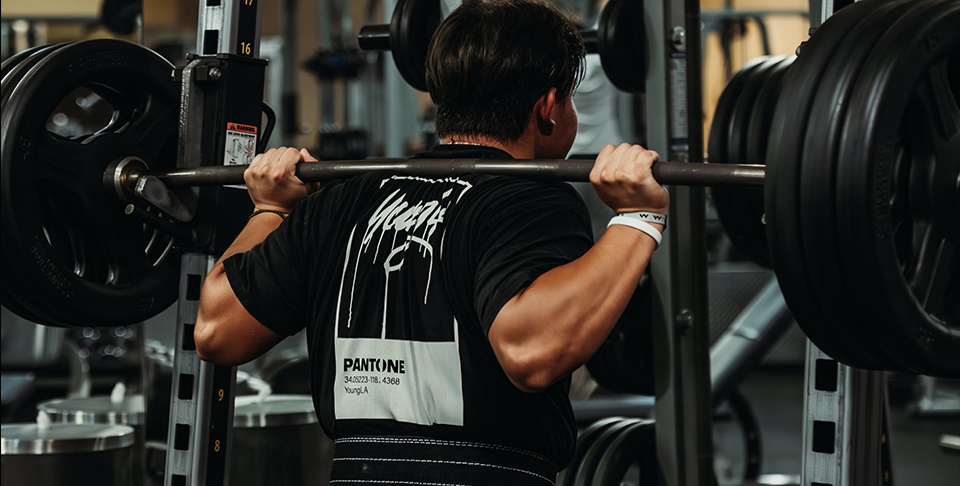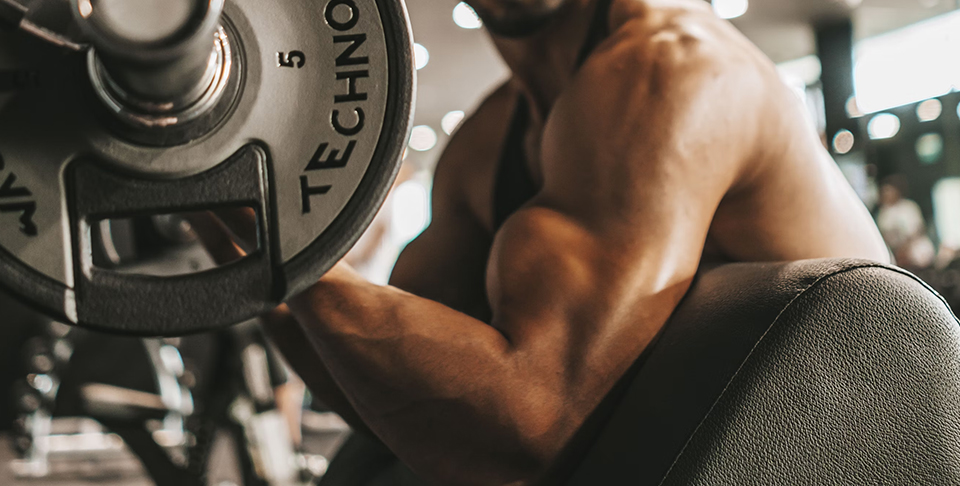 Quick Summary
Quick Summary
- Creatine is a well-researched sports supplement, extensively studied for its efficacy & safety
- Some individuals report increased acne outbreaks while using creatine, possibly due to dehydration affecting skin health
- Intense training regimens may indirectly lead to conditions like acne
- Concerns about creatine affecting liver health arose from a few studies, but substantial evidence shows it's safe
- Dosages of 5-20g daily are found safe in the long term, while 3g per day is deemed risk-free by the European Food Safety Authority
- There's no scientific backing for claims that creatine directly diminishes libido
- The concept of "Creatine Rage" stemmed from pop culture, and there's no evidence supporting creatine-induced anger
- Some users may experience gastric issues like diarrhoea or belching; measures like dissolving creatine in warm water can alleviate these symptoms
- Water retention is a primary side effect of creatine, giving muscles a pumped look but might be unwelcome for those aiming to reduce weight
- Creatine monohydrate's structure contributes to its water-retaining properties, which can be more pronounced during the initial stages of supplementation
- Overdosing on creatine can lead to stomach upsets
- To minimise side effects, it's advised to stay well-hydrated, avoid large single doses, & ensure complete dissolution of creatine in liquids
- Individuals with pre-existing health conditions, particularly concerning liver or kidneys, should consult with medical professionals before starting creatine
- Creatine might cause initial weight gain, mostly from water retention, and this might level out over time
- Creatine is considered very safe for most users
Creatine is prominently positioned in the pantheon of sports supplements, thanks to extensive research backing its efficacy. Celebrated for its performance and cognitive enhancements, it's paramount to discern its full profile, potential drawbacks included.
Creatine & Acne: A Direct Connection?
The intersection of creatine and acne isn't carved in stone. While some creatine users have noticed acne outbreaks, science remains neutral on this association. Creatine promotes water retention which, if not counterbalanced by increased hydration, might rob the skin of the moisture it craves.
Amplify this with an immune system possibly weakened by an intense workout routine, and you've got a recipe for skin issues. Including immune-boosting supplements, like Glutamine, might be the silver bullet for those facing breakouts.
Creatine & Liver Health: Analyzing the Concerns
Over time, relying heavily on any supplement or drug raises eyebrows on safety. A sprinkling of studies allude to liver enzyme changes tied to creatine, but the broader scientific community gives creatine a clean bill of health. A reassuring meta-analysis implies doses of up to 20g/day remain safe in the long run.
Concurrently, the European Food Safety Authority stamps its approval on a daily creatine monohydrate dose of 3g. However, if liver issues are in your medical history, initiating a dialogue with a healthcare expert before venturing into creatine is wise.
Creatine & Libido: Is There a Hidden Connection?
Creatine's effects on libido are foggy, at best. While anecdotal accounts lean towards a decreased libido post-creatine, scientific evidence stays quiet. Secondary factors like potential dehydration or disrupted sleep patterns, possibly induced by creatine, could indirectly influence one's libido.
The Fabled 'Creatine Rage': Fact or Fiction?
Creatine's rumoured contribution to increased irritability is more myth than reality. A tidbit from MTV's "Bully Beatdown" episode in the U.S inadvertently gave birth to this myth, but researchers remain unperturbed. If anything, creatine's cognitive boost may well be an antidote to mounting frustration.
Creatine & Digestive Discomfort: The Gastrointestinal Tale
Digestive upheavals, be it diarrhea, gas, or belching, emerge as grievances for some creatine enthusiasts. Combatting this discomfort might be as simple as ensuring creatine's complete dissolution before ingestion or spacing out your dosage. Moreover, bypassing the initial heavy-duty loading phase might spell relief for many.
Creatine & Water Weight: Embracing the Pluses & Minuses
Creatine's association with water retention serves a dual purpose. It offers muscles a tantalizingly fuller appearance, which is a visual treat for many. However, those in the throes of weight reduction might not be as appreciative. This initial surge in water weight typically wanes with time.
For the sceptics, considering a shift from creatine monohydrate to creatine nitrate might be worth exploring, although scientific consensus on this is awaited.
Creatine Overconsumption: Wading into the Unknown
Delving into the repercussions of excessive creatine, gastrointestinal discomfort stands out. While it remains speculative, some quarters wonder if overconsumption might adversely nudge kidney or liver functions.
This, however, remains more in the realm of theoretical musings than established facts.
How To Minimise Creatine Side Effects
To truly harness creatine's potential while sidestepping its pitfalls, adopt these measures:
- Hydration: Upping water intake can neutralise potential dehydration.
- Dose Division: Consider spacing out your creatine intake throughout the day instead of a heavy one-time dose.
- Dissolution: Ensure creatine is entirely dissolved in liquid, preferably warm, before consumption.
- Consultation: If in doubt, always consult with a healthcare professional. Tailoring creatine usage based on individual needs can minimize risks.
Creatine Negative Effects: FAQs
- Can creatine cause kidney damage? As of now, there's no conclusive scientific evidence suggesting that creatine, when taken at recommended dosages, causes kidney damage in healthy individuals. However, those with pre-existing kidney conditions should consult a healthcare professional before taking creatine.
- Is creatine harmful to the liver? Most research indicates that creatine does not cause liver damage when consumed in recommended doses. However, always be cautious & consult a medical professional if you have liver concerns or any other health conditions.
- Does creatine consumption lead to kidney stones? There isn't direct evidence linking creatine supplementation with kidney stones. Still, it's essential to maintain proper hydration levels when using creatine to support overall kidney health.
- Will I experience significant weight gain with creatine? Creatine can lead to initial weight gain, primarily due to water retention in the muscles. This increase is usually temporary and may level out as the body adjusts.
- Does creatine cause bloating? Some individuals might experience bloating, especially during the initial loading phase. This is due to the water retention effect of creatine. Drinking ample water and spacing out dosages might help alleviate this.
- Can creatine lead to dehydration? Creatine pulls water into your muscles, which can potentially cause dehydration if you're not drinking enough fluids. It's vital to increase your water intake when supplementing with creatine.
- Do muscle cramps arise from creatine usage? Some users report muscle cramps or strains with creatine. Ensuring proper hydration & stretching can help mitigate this risk.
- Are there any digestive concerns linked to creatine? Digestive disturbances, such as diarrhea or stomach upset, might occur, especially if larger doses are consumed at once. Splitting the dose and ensuring complete dissolution in liquid can help reduce these effects.
- What is compartment syndrome, and can creatine cause it? Compartment syndrome occurs when excessive pressure builds up inside an enclosed muscle space in the body. While it's a serious condition, there's no established link between creatine usage & compartment syndrome.
- Is rhabdomyolysis a concern with creatine supplementation? Rhabdomyolysis is a severe breakdown of skeletal muscle tissue. While the condition is serious, there's no direct evidence to suggest creatine supplementation causes it. As with all supplements, it's essential to use creatine responsibly & be aware of any unusual symptoms.
Concluding Thoughts
As with all supplements, Creatine if misused, may present some unwanted side effects. With knowledge as your compass, you can navigate its benefits judiciously.
(1) Poortmans JR, Francaux M. Adverse effects of creatine supplementation: fact or fiction? Sports Med. 2000 Sep;30(3):155-70
(2) Kim HJ, Kim CK, Carpentier A, Poortmans JR. Studies on the safety of creatine supplementation. Amino Acids. 2011 May;40(5):1409-18.
(3)Bizzarini E, De Angelis L (December 2004). "Is the use of oral creatine supplementation safe?". The Journal of Sports Medicine and Physical Fitness 44 (4): 411–6
(4) Opinion of the Scientific Panel on food additives, flavourings, processing aids and materials in contact with food (AFC) on a request from the Commission related to creatine monohydrate for use in foods for particular nutritional uses. EFSA 26th April 2004. http://www.efsa.europa.eu/de/efsajournal/pub/36.htm Accessed 7-1-2014
(5) Rae, C.; Digney, A. L.; McEwan, S. R.; Bates, T. C. (2003). "Oral creatine monohydrate supplementation improves brain performance: A double-blind, placebo-controlled, cross-over trial". Proceedings of the Royal Society B: Biological Sciences 270 (1529): 2147–50.
(6) Ostojic SM, Ahmetovic Z. Gastrointestinal distress after creatine supplementation in athletes: are side effects dose dependent? Res Sports Med. 2008;16(1):15-22.
(7) Hall M, Trojian TH. Creatine supplementation. Curr Sports Med Rep. 2013 Jul-Aug;12(4):240-4.


